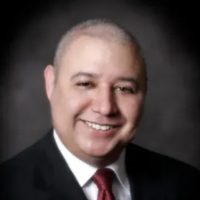Hammond Criminal Lawyer, Indiana
Sponsored Law Firm
-
 x
x

Click For More Info:
-
Stracci Law Group, PC
11890 Broadway Crown Point, IN 46307» view mapCriminal Defense, OWI & Personal Injury Law Respected. Resourceful. Relentless.
Paul maintains a strong rapport with his clients as well as with other legal professionals in the area. He is a relationship builder, who has built strong relationships.
800-928-0490
Andrew Phillip Martin
✓ VERIFIEDDivorce & Family Law, Criminal, Accident & Injury, Estate, Real Estate
Professional. Personalize. Cost Effective.
Andrew Martin was born in Chicago, Illinois and lived in the Chicago suburbs his entire life. Mr. Martin lived in Schaumburg, Naperville and Plainfiel... (more)
Alejandro Dominguez
✓ VERIFIEDDUI-DWI, Criminal
I am Alex Dominguez and I provide the highest quality, cost-efficient legal representation possible. I am an experienced trial lawyer representing cli... (more)
Andrew M. Yoder
Accident & Injury, Criminal, Divorce & Family Law, Lawsuit & Dispute
Status: In Good Standing
FREE CONSULTATION
CONTACTStephen Charles Bower
Criminal, Government Agencies, Government Contract, Litigation
Status: In Good Standing
Samuel George Vazanellis
Administrative Law, Animal Bite, Criminal, Bad Faith
Status: In Good Standing
FREE CONSULTATION
CONTACTKevin Chandler Smith
Real Estate, Criminal, Consumer Rights, Accident & Injury
Status: In Good Standing
Jennifer Cantrell
Traffic, Family Law, Criminal, Medical Malpractice
Status: In Good Standing Licensed: 18 Years
Randy Alan Godshalk
Criminal, Divorce & Family Law, Traffic, Estate
Status: In Good Standing Licensed: 34 Years
 Paul Stracci Crown Point, IN
Paul Stracci Crown Point, IN Practice AreasExpertise
Practice AreasExpertise


